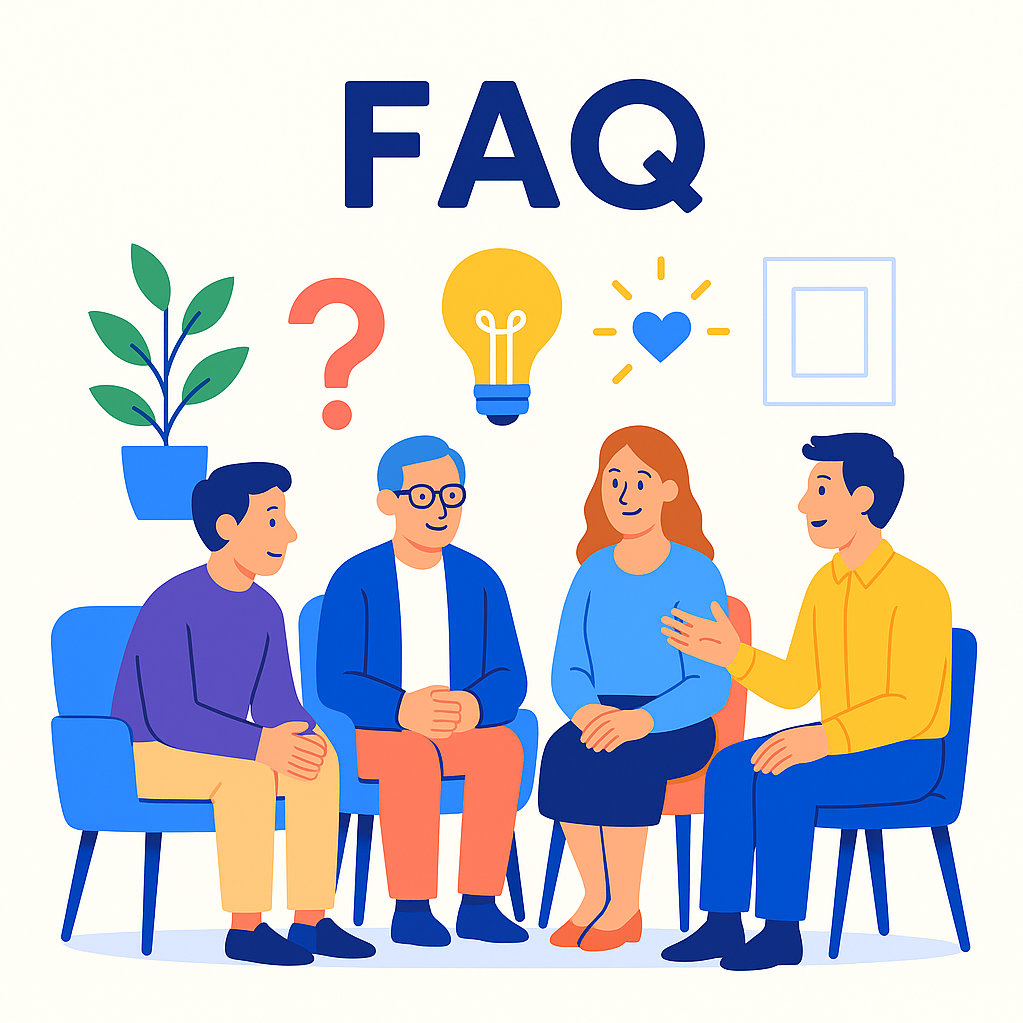Straight answers about chronic pain - no fluff, just real talk backed by science
Frequently Asked Questions
Understanding Chronic Pain
Why is my pain "chronic" and not going away like other pain?
Chronic pain isn't just regular pain that sticks around too long. Your nervous system has actually changed how it processes pain signals. Think of it like your pain volume knob getting stuck on high—even when the original injury has healed, your brain continues to receive "danger" messages. This happens through a process called central sensitization, where your pain processing system becomes more efficient at sending pain signals and less efficient at blocking them.
Is chronic pain just "all in my head"?
Absolutely not. Chronic pain causes real physical changes in your nervous system that can be seen on specialized brain scans. The pain you feel is genuine physical pain. When people say "it's in your head," they're misunderstanding how pain works—all pain, even from a broken bone, is ultimately processed by your brain. The difference with chronic pain is that your pain processing system has become overly sensitive and reactive.
Why do doctors sometimes struggle to find the cause of my pain?
Many imaging tests (like X-rays and MRIs) only show structural changes, not pain itself. Your pain may be caused by how your nervous system is functioning rather than by visible damage. Also, many people with structural abnormalities on scans have no pain at all! This is why finding the right healthcare provider who understands chronic pain can be so important—they know to look beyond just the images.
Managing Chronic Pain
Should I stay active if I'm sore, or is rest better?
Generally, appropriate movement is better than complete rest for most chronic pain conditions. However, the key word is "appropriate"—finding your personal sweet spot between too much and too little activity. Complete rest can lead to deconditioning and often makes pain worse over time, while pushing through significant pain can trigger flares. Start with gentle, pain-tolerable movement and gradually build up your activity level.
Why do my pain levels change so much from day to day?
Pain fluctuates because it's influenced by countless factors beyond physical damage—stress levels, sleep quality, weather changes, hormonal fluctuations, and even what you ate can all affect pain sensitivity. Your nervous system's sensitivity isn't constant; it responds to your internal and external environment. Tracking these factors can help you identify your personal pain triggers and patterns.
Will I need to take pain medication forever?
Not necessarily. While some people benefit from long-term medication, many find that as they develop a comprehensive pain management approach—combining movement, stress management, sleep improvements, and other strategies—they can reduce their reliance on medication. The goal isn't usually to eliminate medication completely but to find the combination of tools that gives you the best quality of life.
Can diet really affect my chronic pain?
Yes! What you eat can influence inflammation levels in your body, which can impact pain sensitivity. While no single "pain diet" works for everyone, many people find that reducing highly processed foods and adding anti-inflammatory foods (like fatty fish, colorful vegetables, and certain spices) can help moderate pain levels. Food sensitivities can also trigger inflammation and pain in some people.
Living with Chronic Pain
How do I explain chronic pain to people who don't get it?
Try comparing it to something familiar, like a faulty alarm system that keeps going off even when there's no fire. You could also use the "spoon theory" (where each task costs energy "spoons" and chronic pain means you have fewer spoons to spend) or explain that chronic pain is like having a radio playing in the background—sometimes louder, sometimes quieter, but always there.
Is it normal to feel depressed or anxious with chronic pain?
Completely normal. Pain affects the same brain regions involved in emotion processing, and living with chronic pain is genuinely challenging. About 30-50% of people with chronic pain experience depression or anxiety. The good news is that addressing these emotional aspects can actually help reduce pain intensity, as the brain circuits are interconnected.
How can I manage work with unpredictable pain levels?
Start by understanding your rights to reasonable accommodations. Focus on identifying your most productive hours and energy patterns, then structure your work accordingly when possible. Consider tools like flexible schedules, ergonomic equipment, strategic breaks, and position modifications. Be selective about which tasks deserve your limited energy.
Will I ever get better?
While not everyone achieves complete pain freedom, most people can significantly improve their quality of life and functionality with the right approaches. Many find that while the pain may not disappear entirely, it becomes more manageable and less dominant in their lives. Recovery often means learning to live well despite some pain, rather than waiting for the pain to disappear before living your life.
How can I find joy when dealing with chronic pain?
Joy doesn't require pain-free moments. Start by identifying activities that bring you pleasure without significantly increasing pain. Practice mindfulness to fully engage in positive experiences when they occur. Nurture relationships that energize rather than drain you. And perhaps most importantly, work on separating your identity from your pain—you are not your pain, and you deserve moments of joy regardless of your pain levels.
